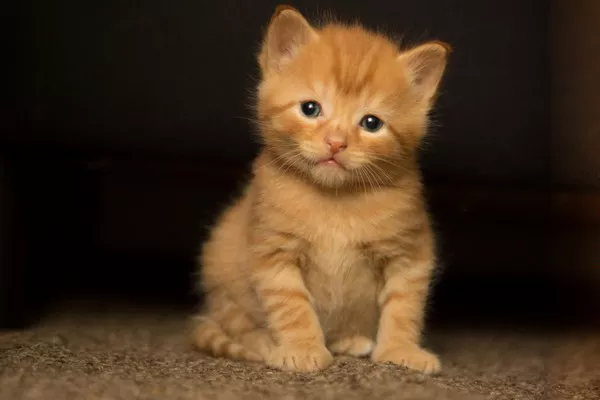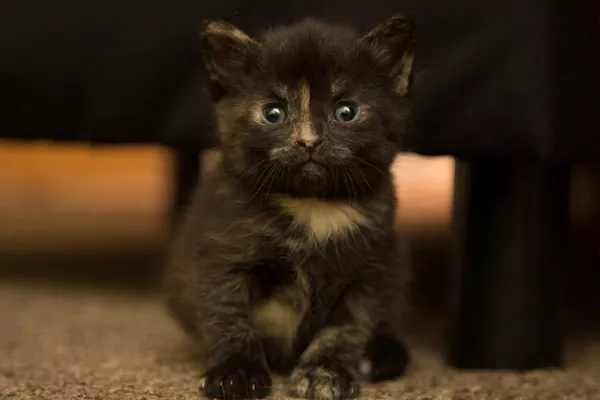As cat owners prepare to embark on vacations, a common concern arises: what goes through the minds of our feline companions when we leave them behind? Cats are known for their independent nature, but they also form strong bonds with their humans. This essay delves into the psychology of cats, exploring their emotions, behaviors, and perceptions when their owners go on vacation. We will examine how cats perceive time, their attachment styles, the impact of separation, and what owners can do to ensure their pets feel secure and loved even in their absence.
Understanding Cat Psychology
The Nature of Cats
Cats are complex creatures with unique personalities. Unlike dogs, which are pack animals and often crave constant companionship, cats are more solitary by nature. This independence can lead to the misconception that cats do not care when their owners leave. However, this is far from the truth. Cats are capable of forming deep emotional bonds with their human caregivers and can experience a range of feelings, including anxiety, loneliness, and even depression when separated from them.
Attachment Styles in Cats
Research has shown that cats display various attachment styles, similar to those observed in human children. These attachment styles can significantly influence how a cat reacts to its owner’s absence:
Secure Attachment: Cats with a secure attachment feel safe and confident in their relationship with their owners. They may show signs of mild curiosity or indifference when their owners leave, trusting that they will return.
Insecure-Avoidant Attachment: These cats may appear aloof and indifferent to their owners, but this behavior often masks underlying anxiety. They may not seek comfort when their owners leave, but they can still feel stressed by the separation.
Insecure-Resistant Attachment: Cats with this attachment style may exhibit clingy behavior, showing signs of distress when their owners leave. They may vocalize more, follow their owners around, and display anxiety-related behaviors.
Understanding these attachment styles can help owners gauge how their cats might react to their absence and tailor their departure and return strategies accordingly.
What Happens When Cats Are Left Alone?
Initial Reactions
When a cat’s owner leaves for vacation, the initial reaction can vary based on the cat’s personality and attachment style. Some cats may exhibit signs of confusion or curiosity, while others may show clear signs of distress. Common behaviors observed in cats when their owners leave include:
Vocalization: Some cats may meow or cry when they notice their owner is leaving. This vocalization can be a form of communication, expressing their desire for attention or reassurance.
Exploration: Cats are naturally curious creatures. When left alone, they may explore their environment more thoroughly, checking for any signs of their owner’s presence or changes in their surroundings.
Seeking Comfort: Cats may seek out familiar items, such as blankets, toys, or clothing that smells like their owner. This behavior can provide comfort and a sense of security in their owner’s absence.
The Impact of Time
Cats have a different perception of time compared to humans. While we may think of a week-long vacation as a short period, for a cat, this can feel significantly longer. Research suggests that cats may not have a clear understanding of the passage of time, leading to increased anxiety as the duration of their owner’s absence extends.
Short Absences: For brief separations, such as a day or two, many cats may adjust relatively well. They might engage in their usual activities, such as sleeping, grooming, or playing.
Extended Absences: When owners leave for longer periods, such as a week or more, the effects on a cat’s emotional state can be more pronounced. Signs of separation anxiety may become evident, including changes in eating habits, excessive grooming, or destructive behaviors.
Behavioral Signs of Distress
Cats may not express their feelings in the same way humans do, but they can exhibit behavioral changes that indicate distress. Some common signs of anxiety or stress in cats during their owner’s absence include:
Changes in Appetite: A cat may eat less or refuse food entirely when feeling anxious or stressed. Conversely, some cats may overeat as a coping mechanism.
Litter Box Issues: Stress can lead to inappropriate elimination, such as urinating or defecating outside the litter box. This behavior can signal anxiety or discomfort.
Increased Grooming: Some cats may groom themselves excessively, leading to bald patches or skin irritations. This behavior is often a response to stress.
Destructive Behavior: Cats may engage in destructive behaviors, such as scratching furniture or knocking over objects, as a way to cope with their feelings of anxiety.
Hiding: A stressed cat may seek refuge in hiding spots, avoiding interaction and becoming less active. This behavior can be a sign of fear or anxiety.
Preparing Your Cat for Your Absence
Creating a Safe Environment
To minimize stress for your cat while you are away, it is essential to create a safe and comfortable environment:
Familiar Surroundings: Keeping your cat in their familiar home environment can help reduce anxiety. Cats often feel more secure in their own territory, surrounded by their scent and belongings.
Comfort Items: Providing comfort items, such as a favorite blanket or toy, can help soothe your cat. Items that carry your scent can be particularly comforting.
Secure Spaces: Ensure that your home is safe and secure for your cat. Remove any hazards, and make sure windows and doors are secure to prevent escapes.
Establishing a Routine
Cats thrive on routine, so maintaining a consistent schedule can help ease their anxiety:
Feeding Schedule: Stick to your cat’s regular feeding schedule. If you are using a pet sitter, provide clear instructions on feeding times and portions.
Playtime: Engage your cat in regular play sessions before your departure. This can help expend energy and reduce stress.
Gradual Departures: If possible, practice short departures leading up to your vacation. This can help your cat acclimate to your absence and reduce anxiety when you leave for an extended period.
Choosing the Right Care Option
Selecting the right care option while you are away is crucial for your cat’s well-being. Consider the following options:
Pet Sitters: Hiring a professional pet sitter can provide companionship and care in your absence. A sitter can maintain your cat’s routine, offer playtime, and provide comfort.
Boarding Facilities: If you choose to board your cat, select a reputable facility that prioritizes feline care. Visit the facility beforehand to assess the environment and meet the staff.
Friends or Family: If possible, ask a trusted friend or family member to care for your cat. Familiar faces can provide comfort and reduce anxiety.
In-Home Care: Some services offer in-home boarding, where a caregiver stays in your home with your cat. This option can provide a sense of security and familiarity.
What Happens When You Return?
Reuniting with Your Cat
The reunion between you and your cat after a vacation can be a heartwarming experience. However, the way your cat reacts can vary based on their personality and attachment style:
Excitement: Some cats may greet their owners with enthusiasm, purring, and rubbing against their legs. This behavior indicates a secure attachment and a strong bond.
Indifference: Other cats may seem indifferent or aloof upon your return. While this behavior can be disheartening, it may simply reflect their independent nature or a coping mechanism for your absence.
Stress Responses: In some cases, cats may display signs of stress upon your return, such as hiding or excessive grooming. This behavior can indicate lingering anxiety from your absence.
Rebuilding Trust and Connection
After returning from vacation, it is essential to rebuild trust and connection with your cat:
Quality Time: Spend quality time with your cat, engaging in play and offering affection. This can help reassure them and strengthen your bond.
Patience: Be patient with your cat as they readjust to your presence. Some cats may take longer to feel comfortable again, especially if they experienced anxiety during your absence.
Routine Reestablishment: Reinstate your cat’s daily routine as quickly as possible. Consistency can help them feel secure and reduce any lingering anxiety.
Conclusion
In conclusion, the question of what cats think when we leave for vacation is complex and multifaceted. While cats are often perceived as independent and aloof, they are capable of forming deep emotional bonds with their owners and can experience a range of feelings, including anxiety and loneliness, during separations. Understanding a cat’s psychology, attachment styles, and behaviors can help owners prepare for their absence and ensure their pets feel secure and loved.
By creating a safe environment, establishing routines, and choosing appropriate care options, owners can help minimize their cat’s stress during vacations. Furthermore, recognizing the signs of anxiety and taking steps to rebuild trust upon return can strengthen the bond between cats and their owners. Ultimately, with thoughtful preparation and care, owners can ensure their feline companions are safe and content, allowing both parties to enjoy their time apart and together.



























